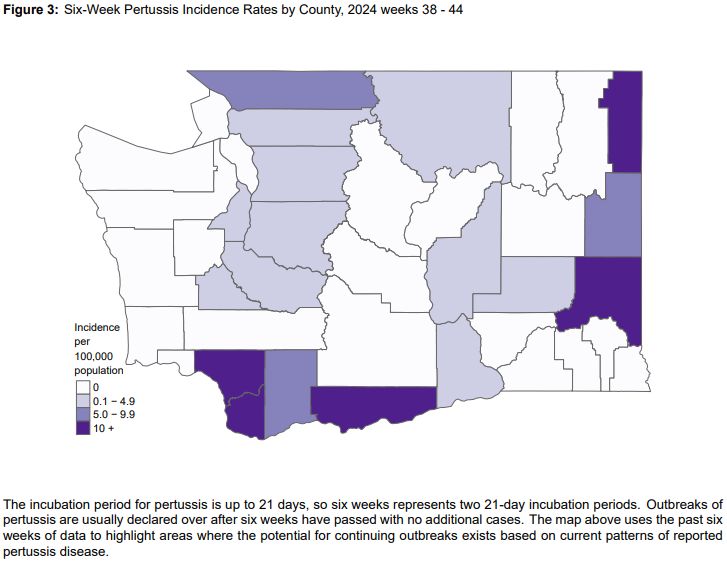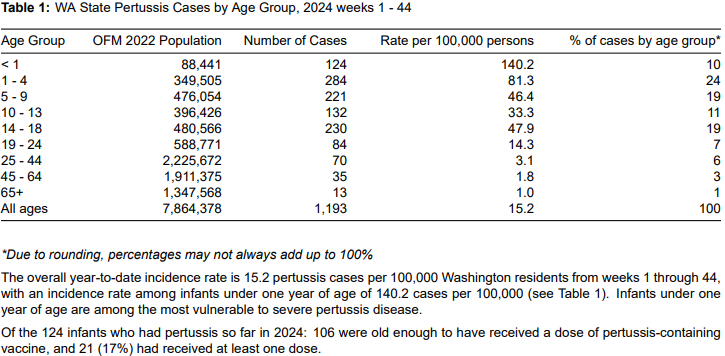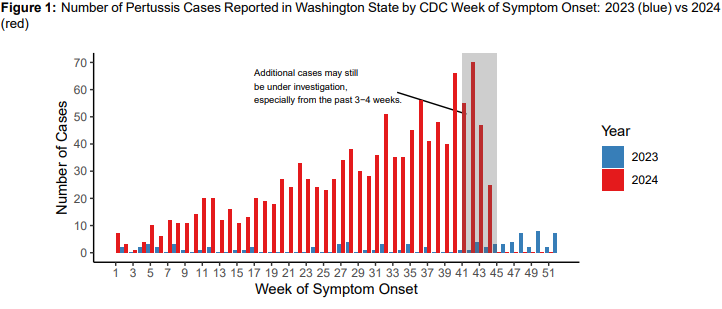
young children to make sure they are up to date on their pertussis vaccinations.
By Kiara Doyal, The Seattle Medium
The Washington State Department of Health (DOH) is alerting the public to a significant rise in the number of pertussis cases in Washington state. Commonly known as whooping cough, there have been 193 cases of pertussis reported statewide as of Nov. 2, a sharp increase from the 51 cases reported this time last year. Across the state, whooping cough has been reported in 31 counties, with Chelan, Clark, and Whitman counties seeing the highest rates.

Whooping cough, a highly contagious bacterial infection, initially presents with symptoms similar to the common cold, such as a runny nose. However, it can quickly escalate to severe coughing fits that may persist for weeks or even months. Out of the 193 reported cases, 28 individuals have been hospitalized, including 12 infants under one year of age. Infants are at the highest risk for severe illness and complications, and some may experience dangerous pauses in breathing, even without exhibiting the characteristic cough.

“To protect babies from whooping cough, people of all ages should get up to date on pertussis vaccination, and anyone with symptoms should see a healthcare provider to determine if testing and antibiotic treatment are necessary,” said Dr. Tao Sheng Kwan-Gett, pediatrician and Chief Science Officer at DOH.
The DOH emphasizes that vaccination remains the most effective means of preventing severe illness from whooping cough. All families and caregivers who interact with infants and young children are urged to ensure they are up to date on their pertussis vaccinations. Pregnant individuals between 27 and 36 weeks are also strongly encouraged to receive the Tdap vaccine, which protects against tetanus, diphtheria, and pertussis and provides critical immunity to newborns until they are old enough to start their own vaccination series at two months. Young children need four doses of the pertussis vaccine by 18 months of age for optimal protection.
“The surge in pertussis cases is a stark reminder of how critical vaccinations are in protecting our most vulnerable, especially infants for whom the infection can be life-threatening,” Kwan-Gett added.

To help limit the spread of whooping cough, antibiotic treatment is recommended for infected individuals, and in some cases, for those exposed who have not yet shown symptoms. Preventative measures such as staying home when ill and covering coughs and sneezes are also effective in reducing transmission.
The DOH is closely monitoring the situation and working with local health officials to support affected communities. Washington residents can stay informed by checking the DOH’s Pertussis Weekly Update, which is published every Friday. To assist with vaccination efforts, the state’s Childhood Vaccine Program offers free or low-cost vaccinations for children under 19. Families can locate a provider and find more information on the DOH website at https://doh.wa.gov/.



